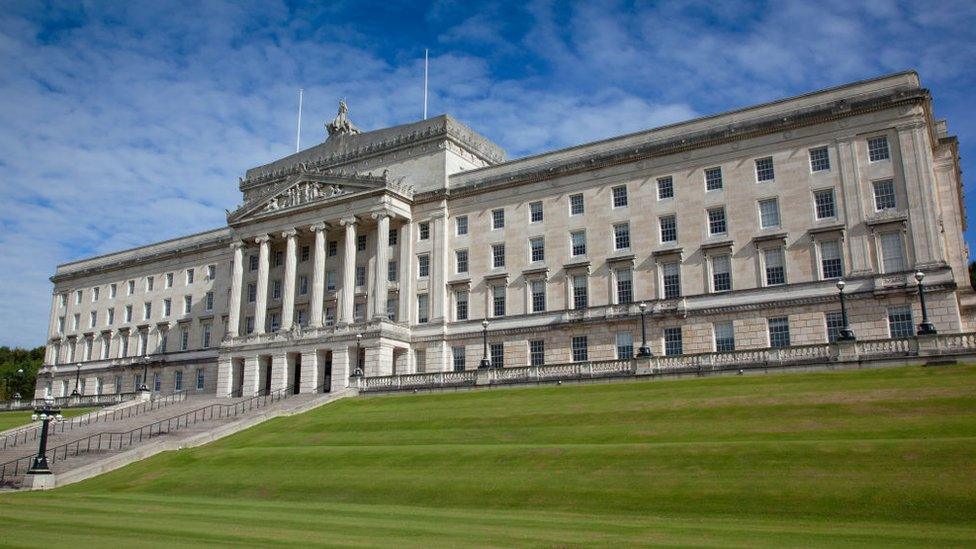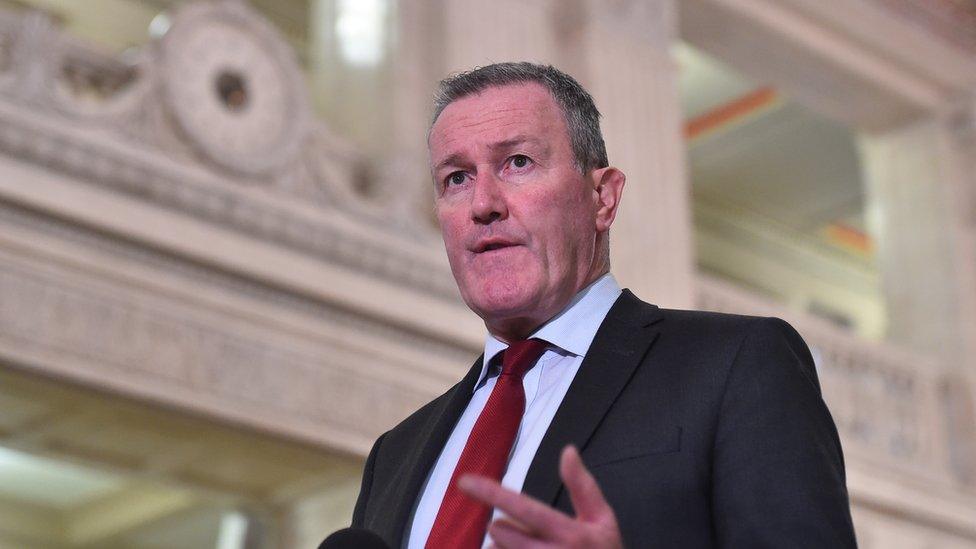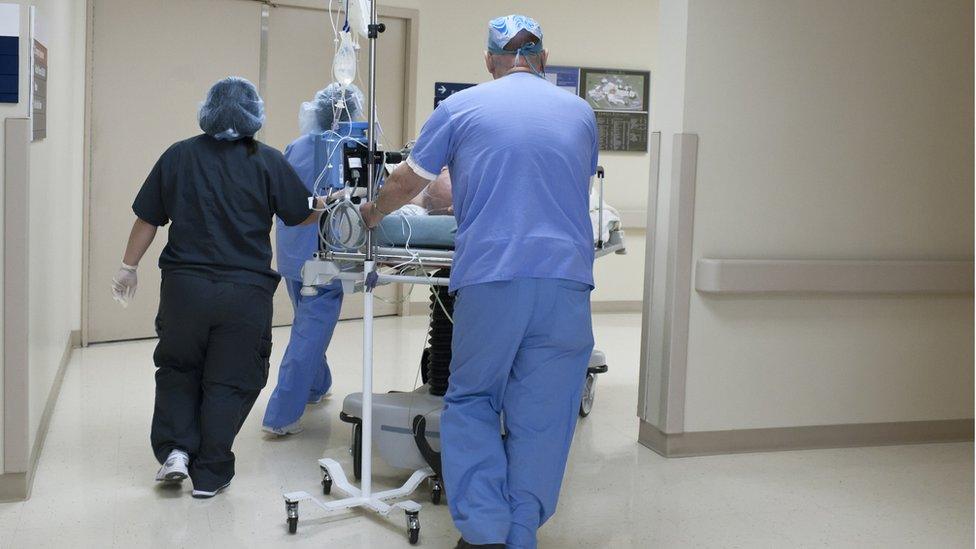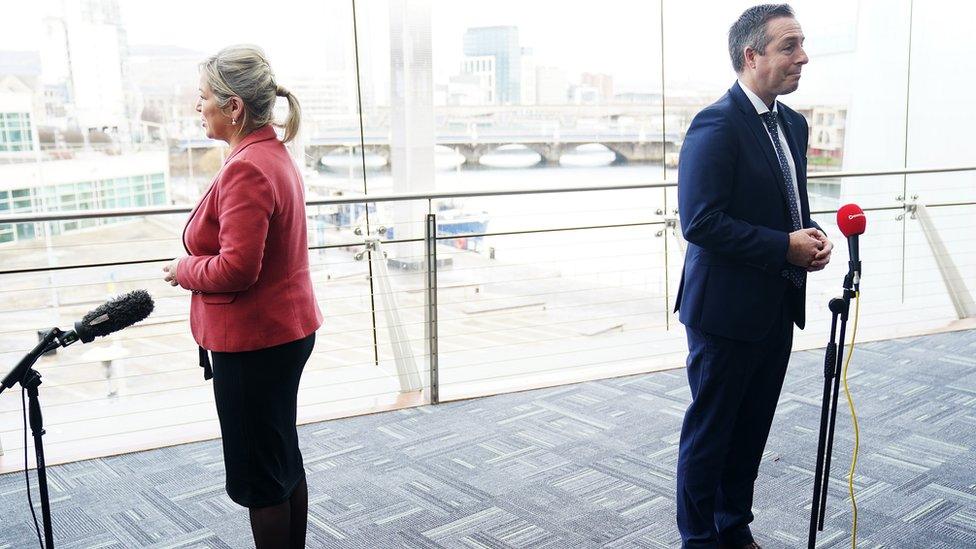Stormont ministers advised budget cannot pass without NI Executive
- Published

Stormont departments are still operating but its governing executive cannot meet in the absence of its leaders
Stormont legal advisors have told ministers they cannot pass a budget in the absence of a Northern Ireland Executive, BBC News NI understands.
It ceased to function in February when Paul Givan resigned as first minister.
At that time, a three-year budget had not been agreed but was being consulted on in draft form.
Last week, the Democratic Unionist Party leader Sir Jeffrey Donaldson said he did not accept all legal options for passing a budget have been exhausted.
It is understood that in recent days ministers have received advice from the Stormont legal service, the Departmental Solicitor's Office, and from the attorney general.
That advice focuses on Section 64 of the Northern Ireland Act, which concerns the law for setting a budget.
It says that before the beginning of each financial year the finance minister should lay before the Northern Ireland Assembly a draft budget which has been agreed by the executive.
Last week, Finance Minister Conor Murphy, of Sinn Féin, said all options to resolve the budget situation had been "legally exhausted".

Finance Minister Conor Murphy warned £300m "will sit idle" until an executive is formed
The DUP had been exploring ideas such as an agreement among party leaders or bringing a budget directly to the assembly.
Stormont departments will still be funded in the new financial year.
A rollover budget will be managed by the senior official in the Department of Finance, a mechanism that has previously been used in the absence of an executive.
However it means that a planned 10% increase for the Department of Health will not happen.
Mr Murphy has also said that that £300m of additional funding from the Treasury for 2022-23 "will sit idle" until an executive is established.
The DUP has suggested that budget reallocations made for this financial year could mean that other flexibilities were possible.
Related topics
- Published4 March 2022

- Published15 February 2022

- Published3 February 2022
